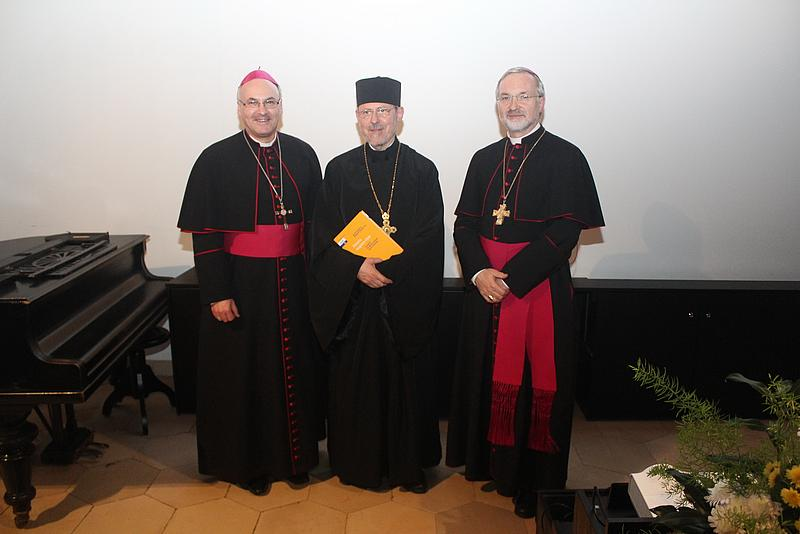Synod more party political than guided by Holy Spirit
Bishop Gregor Maria Hanke of Eichstätt felt that some synodal assemblies were like a party conference. Both bishops see more of a mixed conclusion. The Bishops' Conference is also divided.
The two Bishops with Father Johannes Hofmann
The Bishops of Regensburg and Eichstätt, Rudolf Voderholzer and Gregor Maria Hanke, have criticised the reform project of the Catholic Church in Germany, the Synodal Way. He could not yet draw a conclusion because it was too early for that, Voderholzer told the Media Group Bavaria (Monday). "But it is to be feared that overall it will turn out very mixed," the Regensburg bishop said. He also commented on the Vatican's rejection of synodal councils: "I fear that the letter, which was sent at the Pope's express request, will be largely ignored."
In January, the Vatican had rejected the establishment of so-called synodal councils. The corresponding letter appeared shortly before the end of the Synodal Way, which was launched in 2019. At their most recent plenary assembly, the participants had voted in favour of making the consultations between bishops and laity on central questions permanent in the form of a synodal council. A Synodal Committee is to prepare this new body.
The (Arch)Bishops of Cologne (Rainer Maria Woelki), Augsburg (Bertram Meier), Eichstätt (Gregor Maria Hanke), Passau (Stefan Oster) and Regensburg (Rudolf Voderholzer) then wanted to know from the Vatican whether they were obliged to participate in this committee. The Vatican replied.
Hoping for more unity
With a view to the plenary assembly of the German Bishops' Conference beginning on Monday in Dresden, Voderholzer now added: "My expectations are low, because the conference is divided. I hope for greater unity in Germany and worldwide."
Eichstätt's Bishop Hanke said, "I hope that we can speak openly about all the issues in the room and that every opinion will be given space, so that a constructive debate will also be possible about divergent points of view."
Hanke added that the past meetings of the bishops and the Synodal Way had seemed polarised to him. The Church is undeniably in need of reform, he said. "However, the spectrum of what is understood by this is currently so broad, so full of tension, that I am very worried about our unity."
Hanke urged that one must speak "about the experiences of church, about its gifts and shortcomings", "without hurting each other". This is also one of the basic concerns of the Synodal Path, "but from my point of view we have not really succeeded so far". He felt that some phases of the Synodal Assemblies were "more like a party conference".










.jpeg)

Comments